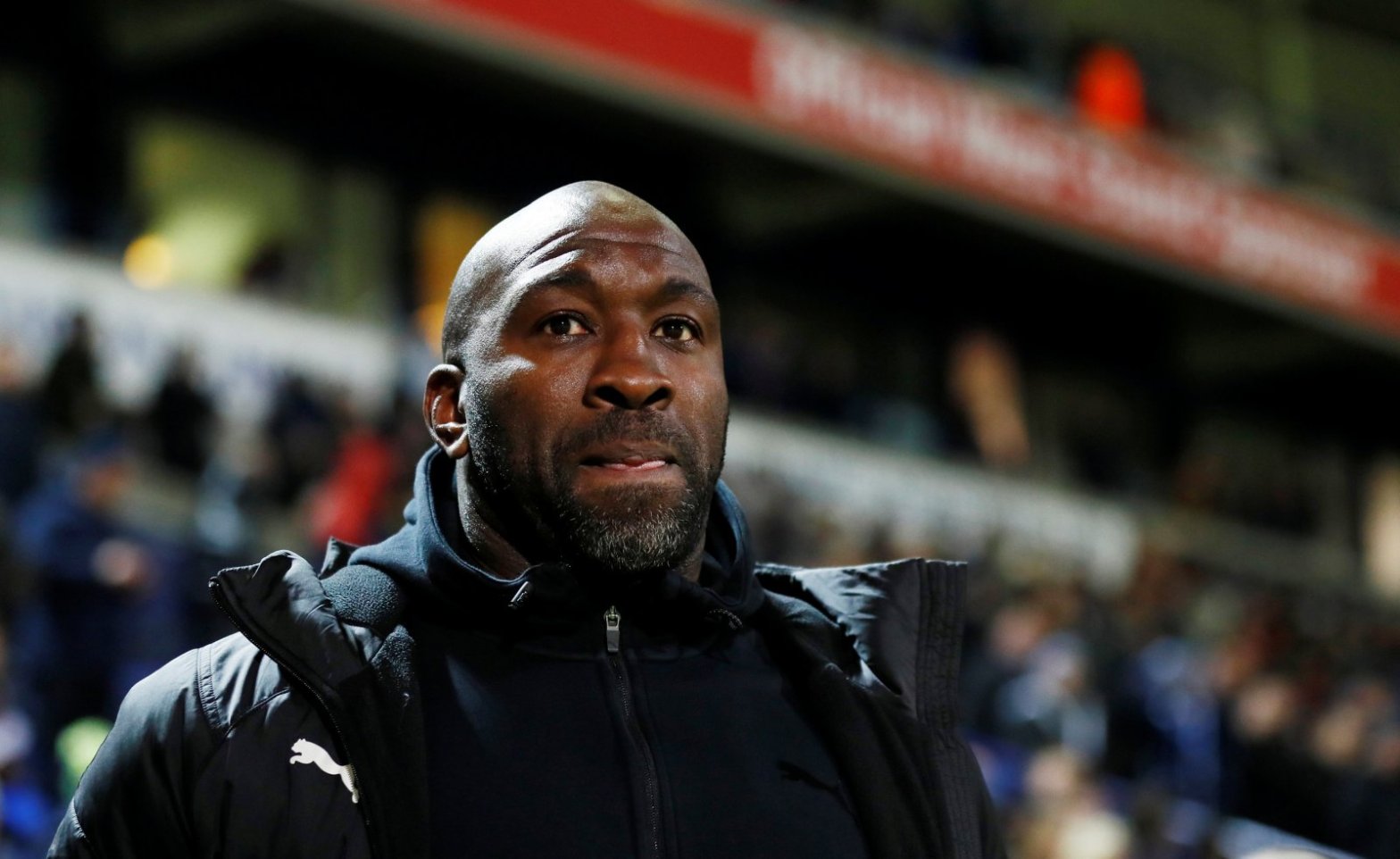When Darren Moore speaks, you listen. It’s likely a major reason why his introduction to first team management as the West Bromwich Albion caretaker back in 2018 saw a quite phenomenal upturn in form that threatened the greatest of escapes.
So when Moore talks back through his days at Pride Park, it’s easy to get captivated by a man widely acknowledged to be one of the nicest in football. And yet, for such a highly respected individual, there’s something just a little terrifying about him too. And that mixture of fear and friend is why he became a Rams cult hero as part of the last side to win promotion to the Premier League. The less said about what happened when we got there, the better.
But even in that 11-point season, he was the one man who was still adored. Despite being part of a defence which conceded 89 goals, Moore was awarded with the player of the year crown – at least the one that wasn’t handed to the supporters. This is the story of Darren Moore’s Derby days.
“I remember getting to the end of 2005/06 after signing from West Brom and we were at the bottom of the table with 15 games to go, we needed to win around half the games” Moore recalls. His signature was quite a coup at the time. Not least because he was both a man with Premier League experience and natural leadership characteristics. But it also signalled a significant change in the backline.
The 05/06 campaign was a farce from top to bottom. Phil Brown had done little to endear himself to supporters, bringing 42-year-old Kevin Poole into the side and fielding his assistant manager Dean Holdsworth in both attack and defence. And then there were the hideous collation of loanees brought into the squad. Stern John and Danny Graham were both abject additions, while at the back young Andrew Davies had three red cards to his name by January. Then there were Emerson Thome, Khalilou Fadiga, the permanent addition of Tomasz Hajto.
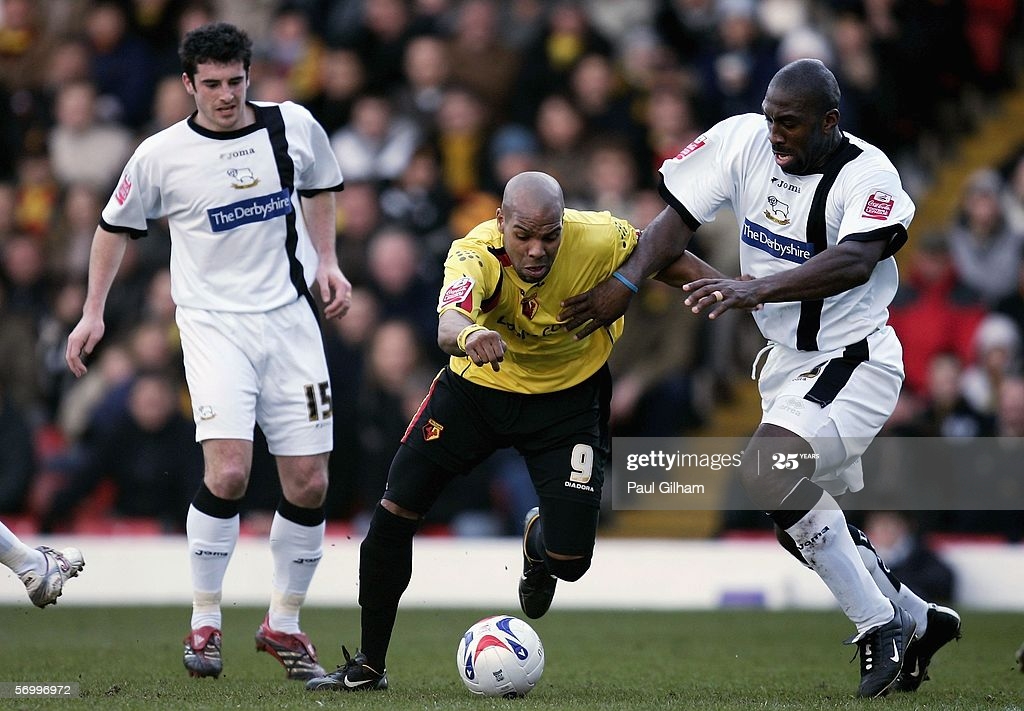
Moore was brought in by Brown, who would soon depart to be replaced by academy chief Terry Westley. Paired alongside Michael Johnson and Lewin Nyatanga, he was able to steady the ship enough that the incoming chairman Peter Gadsby would be in charge of a Championship club rather than League One.
“Coventry City came in for me and I was told to speak to them… I didn’t want to go.”
“We managed to get a few wins and stayed up and I remember thinking ‘we’ve got our Championship status and anything can happen next year.’ We went away for the summer and after coming back, we were under Terry Westley’s stewardship before the club appointed Billy Davies.”
Moore had already become a popular figure at Pride Park but as Billy Davies looked to put his stamp on the side, removing Westley, Tommy Smith, Inigo Idiakez and a handful of others, Moore was set to join them on the way out.
“Coventry City had come in for me and after talking to Billy, I still had two and a half years left on my contract with Derby so I didn’t want to go but I was told to speak to them. I was 34 and Billy was looking to bring younger, fresher players in so I could understand it. And he had Michael Johnson there too with a year remaining, so he would have been thinking that he didn’t need us both. The problem though was Coventry couldn’t match my Derby contract and, in my mind, I didn’t want to go, although the club were telling me to.
“But as it materialised with Micky Adams (the then Coventry manager), the move didn’t happen. So I said to myself that I would go back and the deal was never going to happen in my eyes. Why would I want to go there when I’m at a good club? I’d come to Derby to get Derby into a better place as well, do you know what I mean?”
Despite being out of Davies’ first eleven to begin with, Moore would soon have himself a key part of the wee Glaswegian’s thinking. “I came back and carried on pre-season and I got into the team properly a few games in. Michael had got suspended early on and I played against Luton I think and we scored a few goals. After Michael’s suspension finished, Billy said, ‘I’m gonna stay with you Darren because we’re scoring goals and we’re not conceding’.”
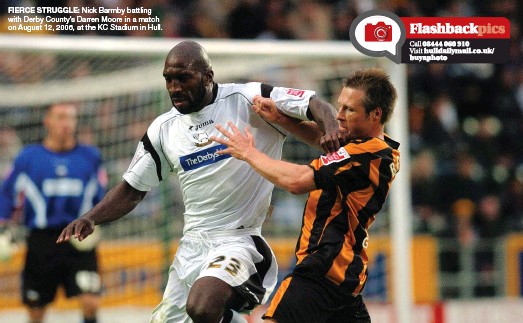
Moore thrived. Paired alongside Dean Leacock, the duo complimented each other perfectly. Leacock was comfortable on the wall and pacey, two things that Moore never had on his CV. But Moore was strong, fierce and dominant in the air. Together, they were the base of a side that achieved a three-year plan in nine months.
“Stephen Bywater came in overweight, Billy told him he wouldn’t play so he dropped 6 or 7% body fat.”
And though Moore was the elder statesman alongside club captain Michael Johnson, he was just one part of a side cherry picked to perfection by Davies, starting right from the back. “Stephen Bywater was instrumental. He came in overweight, Billy told him he wouldn’t play and so he dropped his body fat, something like 6 or 7% body fat, what he did was incredible. But what a goalkeeper, what a man. When you look across the board, everybody played their part that season and that was the biggest component we had at the time.
“Stevie Howard was able to score 20-odd goals, we had a solid rearguard, enough creativity and pace through lads like Giles Barnes, a young Stephen Pearson, the guile of Matt Oakley alongside Seth Johnson. We had enough ingredients in there.”
The core was where Davies focused his attentions, ensuring the centre of the pitch was strong and then focusing on the wider positions as a secondary thought process. And although Davies at first expected to turf Moore out, the two built up a mutual respect aided by a string of victories and clean sheets.
“Billy was energetic, this small character in physical size but a huge heart with a lot of confidence. He was so loud, a real leader and he gave the team an unbelievable desire to want to achieve. He had a siege mentality with us in terms of all the teams being against us, he’d tell us that nobody liked us and that everyone wrote us off, that we’d been disrespected by other clubs and managers. But he’d pull out quotes by other managers about how Derby won the game and shouldn’t have done and just galvanised us, got us on the crest of a wave and carried it on.
“I remember Billy changing tactics three times during a game and we won 1-0.”
“One of the things he was astute with was that during games he would change the tactics a lot. It was a master key from him because as the games went on, we would change tactics completely. I remember one game against Burnley and we completely changed tactics three times during it and won 1-0. I can’t remember the Burnley manager but he was one manager that in the room you could feel Billy’s temperature rise because he just wanted to beat him! I don’t know why but he really did, Steve Cotterill maybe? I remember that very clearly.”
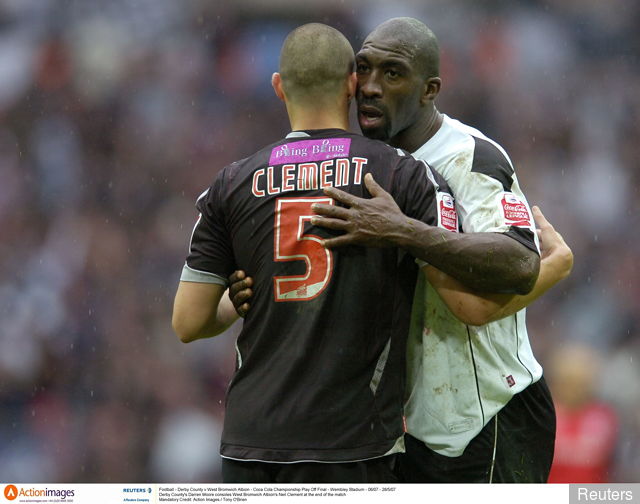
Appearing 42 times across the course of the season in all competitions, Moore (or ‘Big Dave’ as he would be affectionately known), saw the Rams all the way to the brink of promotion, narrowly missing out in part due to a retrospective ban he was handed for a clash with Leicester’s Iain Hume. But back by the play-offs against Southampton, he’d play his part in the most eventful night in the history of Pride Park Stadium.
“When it went to penalties, who’d have thought it would be Idiakez?” he laughs. “Ex-Derby player, George Burley, Rasiak as well. All the connections, so many things with both teams on the day but what a pulsating tie they both were. It was absolutely superb and I loved every single minute of those two matches.” The abiding memory of Moore that night was not his opener inside the first two minutes, it was his decision to comfort the Southampton players who gave so much that night. Gentle giant.
“Before Wembley, my legs were just lead.”
And when it came to connections, Moore himself was to experience them at Wembley when coming up against West Brom, the side he had departed for Derby. On a day of high emotions, he felt it as much as anybody else. Probably even more so.
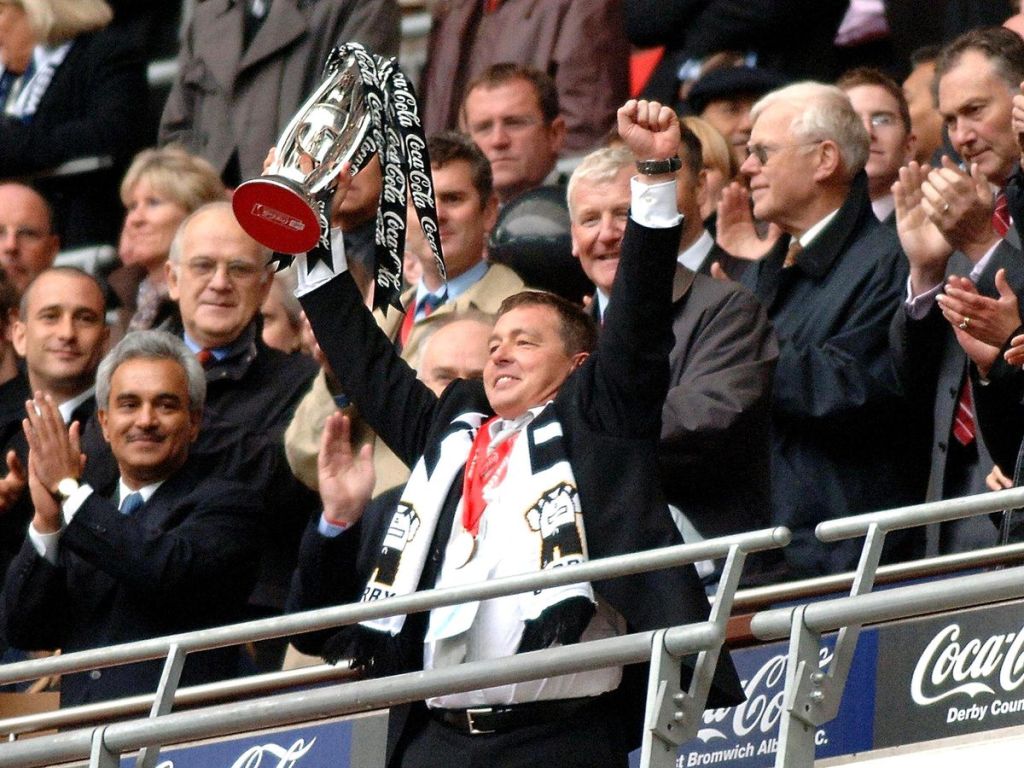
“Before the game my legs were just lead” he recalls. “I couldn’t run! In the warm-up, I was warming up in the furthest corner flag away from West Brom because I just couldn’t look over there. It was almost like I knew everybody over there and I didn’t want them to say hello to me, I didn’t want any of the players talking to me or any of the staff. Even on the day, when Billy said we could go out and look at the pitch and the stadium, I knew they were also on the pitch and I stayed in the dressing room. I just wanted to keep my focus because my focus was with Derby County. When I ran out to train, I went to the furthest end with the Derby fans and away from West Brom because I just wanted to focus. But when the referee blew the whistle it was business for me.”
And business was completed, keeping Kevin Phillips and the strongest frontline the Championship had to offer at bay as Stephen Pearson’s solitary goal was enough to settle promotion. Then, he had a summer to prepare for one last bash at the top flight. From the off, he knew it was set to be a season of struggle.
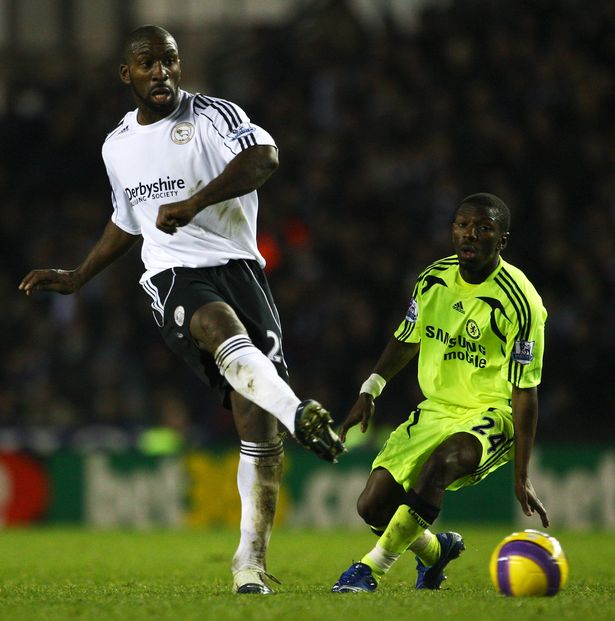
“We only had four weeks before we were back, so I remember going away on holiday and I remember being there and one of the hotel guests recognised me. I went on a day out down the beach and this guy runs to me and goes ‘Oh my goodness Darren, the fixtures are out, have you seen?’ I didn’t have a clue, I hadn’t seen them, didn’t know they were even out. He told me our first few games, Portsmouth first, Tottenham third in I think?
“I just remember thinking ‘we’re back in the Premier League but let’s not be daunted by being here, we deserve this.’ As far as I was concerned, we’d beaten two Premier League just to get up to the division, so that was our benchmark in terms of being able to survive and handle them. Portsmouth in the first game we drew, didn’t we? I think we started okay. Then we played Tottenham.”
And that’s where it all began. 3-0 down inside 20 minutes at White Hart Lane, it was the first indication that this season was going to be more difficult than anyone ever imagined. But though Derby fell apart and went on to record the lowest points tally in the history of the Premier League, Moore doesn’t look back with anger.
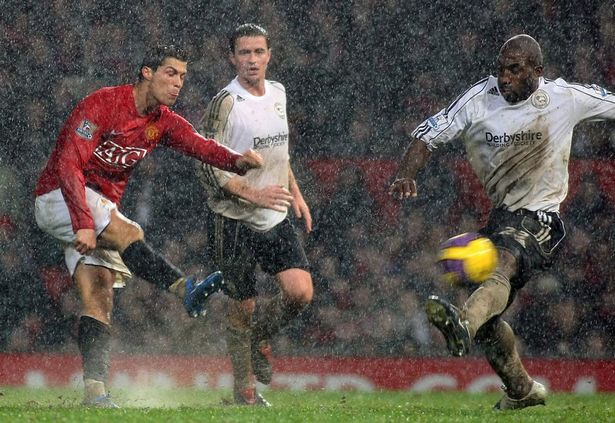
“My time at Derby I am proud of, even with how that season went. At the age I was, to work so hard to get another bite at the Premier League, for me that was incredible. I have no regrets at all in my 21 years as a professional and a part of Derby County will always live long in my memory. At that time, where they were when I joined and where they were when I left, they were on a better road. To be part of the team, the only team who has taken that club back to the Premier League, there is a generation of younger fans who would have seen that memorable day at Wembley. When Stephen Pearson scored the goal, I looked down at the Derby County end and you have 35,000 fans in raptures. The scene on pitch level will live long in my memory.”
Now managing at Doncaster Rovers, Moore has come up against his former employers once, a 4-1 victory for Frank Lampard’s side on a memorable evening at the Hawthorns. He was even tipped for the Derby role after Lampard’s departure, with Philip Cocu ultimately handed the reins.
“My support for the club is still there. I want success for that club.”
“I never spoke to Derby but after everything I did at West Brom there was strong talk about it. If I had the phone call I would have been very interested but I never spoke to Derby. But my support for the club is still there and I still want that success for the club.”
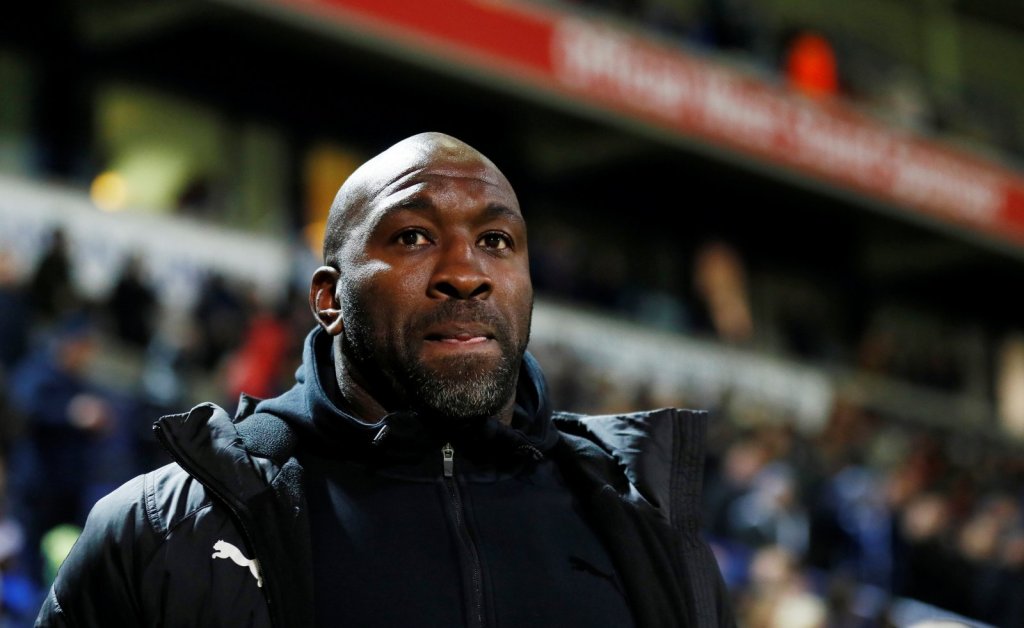
And there’s no clearer indication of his support still being there than his attendance at the 2014 play-off final. That day he went as a Derby County supporter, hoping to see a side emulate the victory he still savours today. “In recent seasons they’ve come close but not close enough. I was there at the QPR game back in 2014 where Bobby Zamora pops up. I was actually sat up there with all of the Derby fans and I just thought ‘goodness me’ because it was a matter of when we were gonna score the goal. When I went back into the lounge, goodness me, it was so dour in there. Everybody’s hearts had been ripped out of them.”
But, like so many who contributed their time towards Pride, Moore still has Derby at heart. “I still look for the results, I still have an interest in Derby and I wish nothing but the best for them. Everything you could want at a football club is already there. Mel has been really, really good in backing the club and he’s clear that he wants to get his club back in that Premier League. It would be magical if he could do it.”
Maybe one day, Mooro.
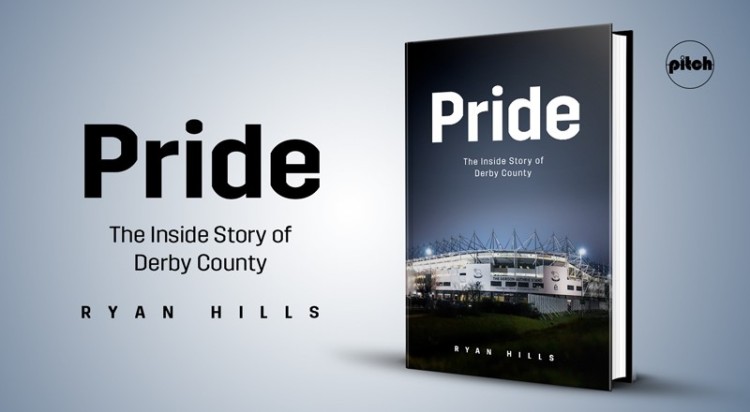
Pride: The Inside Story of Derby County is now available from the DCFC Megastore. From Stefano Eranio and Colin Todd through to Harry Wilson and Gary Rowett, it’s the story of Derby since 1995 by those who know it better than anybody.
